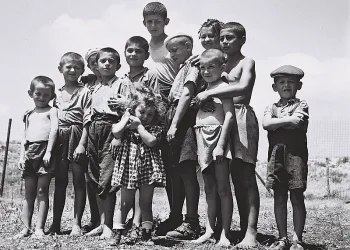Three years have passed since Russia’s invasion of Ukraine began on February 24, 2022. Today, European Union High Representative Kaja Kallas addressed this somber milestone during a press conference following the Foreign Affairs Council meeting in Brussels.
She reaffirmed the EU’s unwavering support for Ukraine and outlined several pivotal decisions made to bolster the nation’s defense and address other pressing international concerns.
Strengthening Support for Ukraine
Kallas emphasized the EU’s commitment to Ukraine, announcing the adoption of the 16th sanctions package against Russia, with work already underway for a 17th package. These measures aim to intensify pressure on Russia to cease its aggression.
Additionally, EU foreign ministers expressed broad support for a new military aid initiative for Ukraine. The specifics, including financial allocations, are slated for discussion at an extraordinary European Council meeting on March 6.
Kallas stressed the urgency of empowering Ukraine to negotiate from a position of strength, stating,
“We have to put Ukraine in a position of strength so that Ukraine is able to say no to a bad deal.”
Addressing the Situation in the Democratic Republic of Congo
The council also deliberated on the deteriorating situation in the Democratic Republic of Congo (DRC), which Kallas described as “very grave” and “on the brink of a regional conflict.”
The EU reaffirmed its support for the Luanda-Nairobi peace process and took concrete steps, including suspending defense consultations with Rwanda and considering sanctions contingent on developments on the ground.
Kallas called for Rwanda to withdraw its troops and mentioned that the Memorandum of Understanding regarding critical raw materials is under review.
Concerns Over Developments in Georgia
Recent events in Georgia were another focal point. Kallas expressed alarm over the adoption of repressive legislation and the excessive use of force against protesters, viewing these actions as a significant regression in the region.
She urged the immediate release of detained protesters and highlighted that Georgia’s current trajectory is misaligned with European values and expectations for candidate countries.
Evolving Dynamics in the Middle East
The Middle East garnered attention, particularly Syria, Israel, Gaza, and Lebanon. Regarding Syria, Kallas noted a cautious optimism about building an inclusive nation, emphasizing collaboration with regional actors.
In a notable policy shift, the EU agreed to suspend specific energy, banking, and transport sanctions to support Syria’s reconstruction efforts. This suspension is immediate and open-ended but can be reversed if Syria’s new leadership reneges on its commitments.
Kallas described this as a “step-for-step approach” and announced the 9th Brussels Syria Conference scheduled for March 17 to further mobilize support.
Engagements with the United States
Addressing recent remarks from the U.S. administration that have caused concern in Europe, Kallas acknowledged the unease but expressed confidence in resolving transatlantic differences.
She highlighted the historical resilience of EU-U.S. relations and announced plans to engage with the new American administration.
Kallas is scheduled to travel to the United States to meet with Secretary of State Marco Rubio and other officials to discuss mutual interests and reinforce the importance of the transatlantic alliance.
EU’s Stance on Seizing Frozen Russian Assets
When questioned about the potential confiscation of frozen Russian assets to aid Ukraine’s reconstruction, Kallas noted that such action requires unanimous support from all EU member states, which is currently lacking.
She expressed hope for progress but remained cautious about reaching an agreement in the immediate future.
Summary
-
Ukraine Support: Adoption of the 16th sanctions package against Russia; military aid details to be discussed on March 6.
-
DRC Situation: Suspension of defense consultations with Rwanda; potential sanctions under consideration.
-
Georgia Concerns: Condemnation of repressive laws and force against protesters; call for immediate release of detainees.
-
Middle East Policy: Suspension of certain sanctions on Syria; upcoming Brussels Syria Conference on March 17.
-
Transatlantic Relations: Upcoming meetings with U.S. officials to address recent concerns and reinforce alliances.
Upcoming EU Foreign Policy Events
| Date | Event | Focus Area |
|---|---|---|
| March 6, 2025 | Extraordinary European Council | Military aid for Ukraine |
| March 17, 2025 | 9th Brussels Syria Conference | Support for Syria |
In Conclusion
High Representative Kaja Kallas’s remarks underscore the EU’s proactive stance on pressing global issues, from steadfast support for Ukraine to addressing conflicts in Africa and the Middle East.
Her emphasis on unity, decisive action, and collaboration with international partners reflects the EU’s commitment to promoting peace and stability in an increasingly complex world.
Sources: Reuters, Interfax and the European Union.







